Year 4
How people, places and environments interact, past and present
The Year 4 curriculum focuses on interactions between people, places and environments over time and space and the effects of these interactions. Students gain opportunities to expand their world knowledge and learn about the significance of environments, examining how people's need and want of resources over time has affected peoples, societies and environments. Specifically, students study European exploration and colonisation in Australia and elsewhere up to the early 1800s and life for Indigenous Australians pre- and post-contact. They examine the concept of sustainability, and its application to resource use and waste management, past and present, by different groups. The curriculum introduces the role of local government, laws and rules, and group belonging and how they meet people's needs. Themes of law and citizenship extend into their studies of diverse groups, the colonisation of Australia and other places, and how environmental sustainability is enacted.
The content provides opportunities for students to develop humanities and social sciences understanding through key concepts including significance; continuity and change; cause and effect; place and space; interconnections; roles, rights and responsibilities; and perspectives and action. These concepts may provide a focus for inquiries and be investigated across sub-strands or within a particular sub-strand context.
The content at this year level is organised into two strands: knowledge and understanding, and inquiry and skills. The knowledge and understanding strand draws from three sub-strands: history, geography and civics and citizenship. These strands (knowledge and understanding, and inquiry and skills) are interrelated and have been developed to be taught in an integrated way, which may include integrating with content from the sub-strands and from other learning areas, and in ways that are appropriate to specific local contexts. The order and detail in which they are taught are programming decisions.
Inquiry Questions
A framework for developing students' knowledge, understanding and skills is provided by inquiry questions. The following inquiry questions allow for connections to be made across the sub-strands and may be used or adapted to suit local contexts: inquiry questions are also provided for each sub-strand that may enable connections within the humanities and social sciences learning area or across other learning areas.
- How have laws affected the lives of people, past and present?
- What were the short- and long-term effects of European settlement on the local environment and Indigenous land and water management practices?
- What is the significance of the environment and what are different views on how it can be used and sustained, past and present?
(source: www.australiancurriculum.edu.au)
Achievement Standard
By the end of Year 4, students recognise the significance of events in bringing about change and the importance of the environment. They explain how and why life changed in the past and identify aspects of the past that have remained the same. They describe the experiences of an individual or group in the past. They describe and compare the diverse characteristics of different places at local to national scales. Students identify the interconnections between components of the environment and between people and the environment. They identify structures that support their local community and recognise the importance of laws in society. They describe factors that shape a person's identity and sense of belonging. They identify different views on how to respond to an issue or challenge.
Students develop questions to investigate. They locate and collect information and data from different sources, including observations to answer these questions. When examining information, they distinguish between facts and opinions and detect points of view. They interpret data and information to identify and describe distributions and simple patterns and draw conclusions. They share their points of view, respecting the views of others. Students sequence information about events and the lives of individuals in chronological order with reference to key dates. They sort, record and represent data in different formats, including large-scale maps using basic cartographic conventions. They reflect on their learning to propose action in response to an issue or challenge, and identify the possible effects of their proposed action. Students present ideas, findings and conclusions using discipline-specific terms in a range of communication forms.
(source: www.australiancurriculum.edu.au)
Achievement Standard
By the end of Year 4, students recognise the significance of events in bringing about change. They explain how and why life changed in the past and identify aspects of the past that have remained the same. They describe the experiences of an individual or group in the past.
Students sequence information about events and the lives of individuals in chronological order with reference to key dates. They develop questions about the past and locate, collect and sort information from different sources to answer these questions. They analyse sources to detect points of view. Students develop and present texts, including narrative recounts, using historical terms.
(source: www.australiancurriculum.edu.au)
Achievement Standard
By the end of Year 4, students describe the location of selected countries using compass direction. They describe and compare the characteristics of places in different locations at local to national scales. They identify the interconnections between components of the environment and between people and the environment. Students recognise the importance of the environment and identify different possible responses to a geographical challenge.
Students develop geographical questions to investigate and locate, collect and sort information and data from different sources to answer these questions. They record and represent data and the location of places and their characteristics in simple graphic forms, including large-scale maps that use the cartographic conventions of scale, legend, title and north point. They describe the location of places and their features using grid references and compass direction. Students interpret geographical data to identify spatial distributions and simple patterns and draw conclusions. They present findings using geographical terminology in a range of texts. They propose individual action in response to a local geographical challenge and identify some possible effects of their proposed action.
(source: www.australiancurriculum.edu.au)
Achievement Standard
By the end of Year 4, students identify structures and decisions that support their local community and recognise the importance of laws in society. They describe factors that shape a person's identity and sense of belonging.
Students develop questions about the society in which they live and locate and collect information from different sources to answer these questions. They examine information to distinguish between facts and opinions, identify points of view and to draw conclusions. They share their points of view, respecting the views of others, and identify the groups they belong to. Students present ideas and conclusions using discipline-specific terms in a range of communication forms.
(source: www.australiancurriculum.edu.au)
- Plus Plan
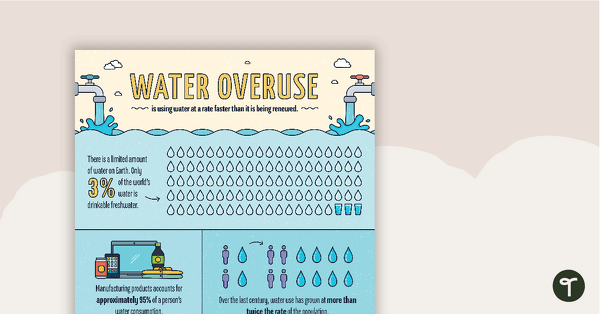
Water Overuse – Infographic Poster and Worksheet
Explore the overuse of water and its effects on the world’s population with this eye-opening infographic poster and accompanying comprehension worksheet.
- Plus Plan
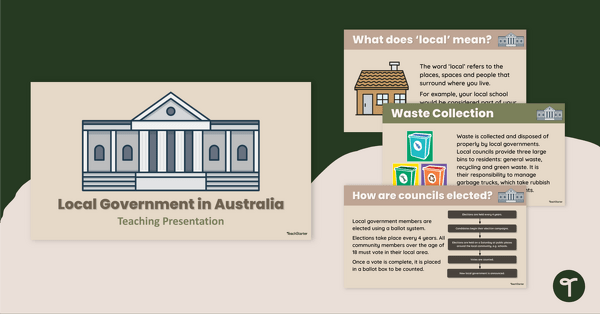
Local Government Australia - Teaching Slides
Explore the ins and outs of local government in Australia with this in-depth set of teaching slides.
- Plus Plan
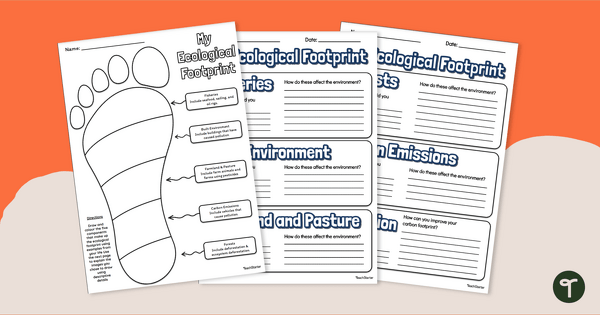
Ecological Footprint Draw and Write
Help your students be more eco-conscious by having them complete a carbon footprint worksheet.
- Plus Plan
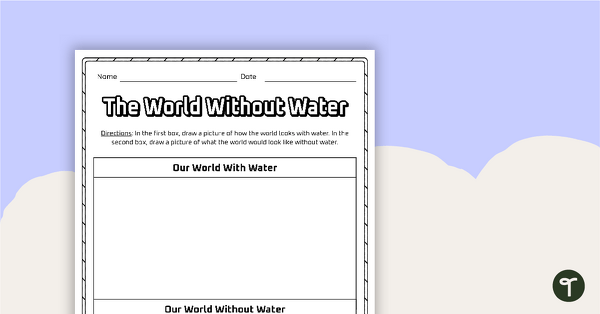
A World Without Water - Natural Resource Worksheet
Imagine and depict what a world without water would look like with a drawing prompt worksheet.
- Plus Plan
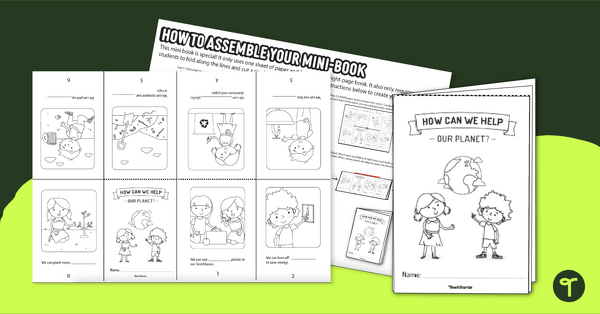
How Can We Help Our Planet Mini Book
Help your students learn about how to keep our planet clean with a printable Earth Day book.
- Plus Plan
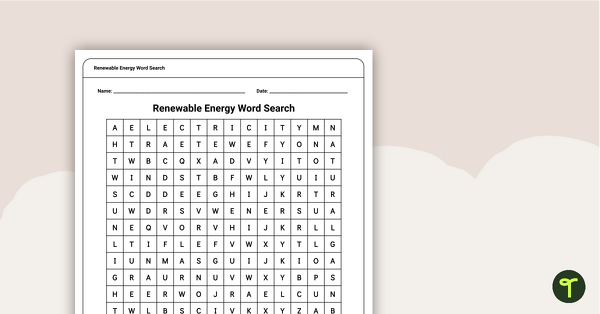
Renewable Energy Word Search
Review science vocabulary terms with an engaging renewable energy word search.
- Free Plan
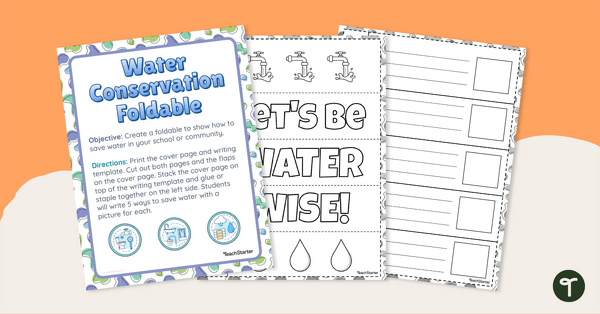
Water Conservation Foldable
Display different ways to save water with this water conservation foldable.
- Plus Plan
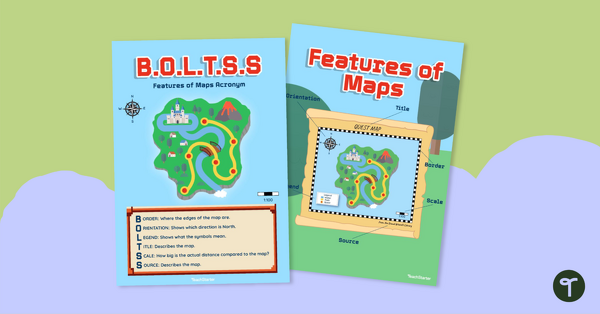
B.O.L.T.S.S Features of Maps Posters for the Classroom
Teach the BOLTSS mnemonic and explore the features of maps using this set of colourful classroom posters.
- Free Plan
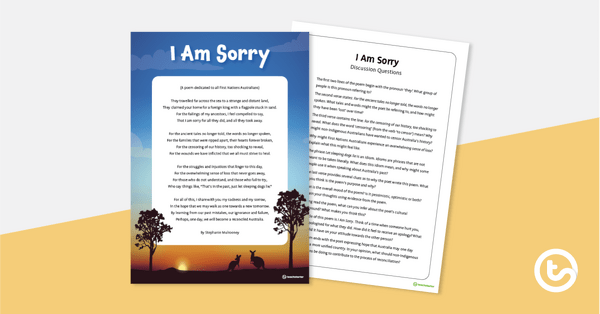
I Am Sorry – Poem and Discussion Questions
A poem to promote thoughtful discussion around issues of reconciliation on National Sorry Day.
- Free Plan
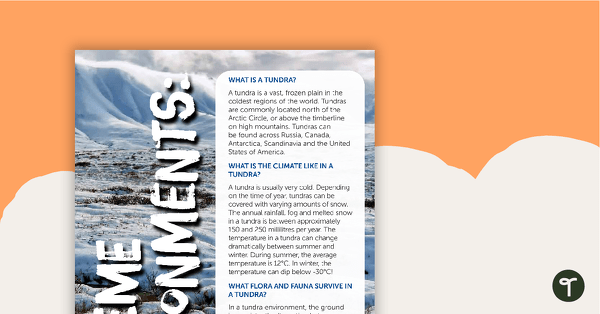
Extreme Environments: Lands of Ice and Sand – Worksheet
A comprehension worksheet for an information report from the Year 4 magazine (Issue 3).
- Plus Plan
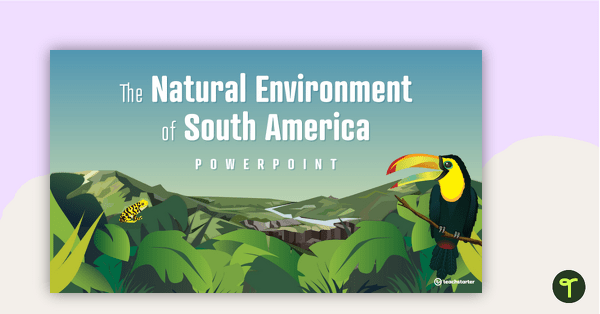
The Natural Environment of South America PowerPoint
A 17 slide editable PowerPoint template to use when introducing students to the climate, vegetation and animals of South America.
- Free Plan
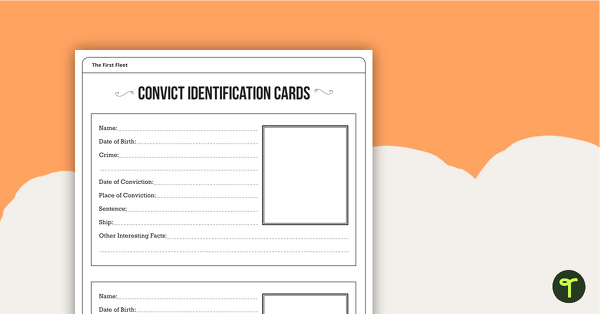
Convict Identification Cards - Template
A convict identification card template to use in the classroom when learning about the convicts of the First Fleet.
- Free Plan
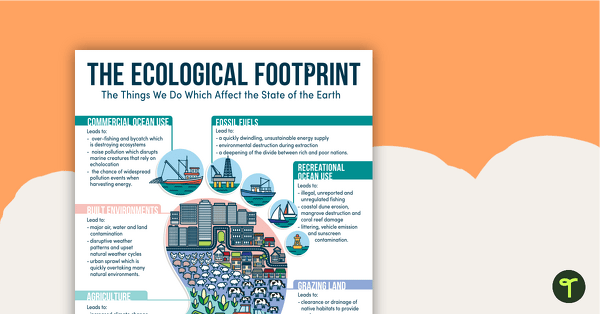
My Ecological Footprint - Reference Sheet
Teach your students about the things we do that affect the Earth with an ecological footprint reference sheet.
- Free Plan
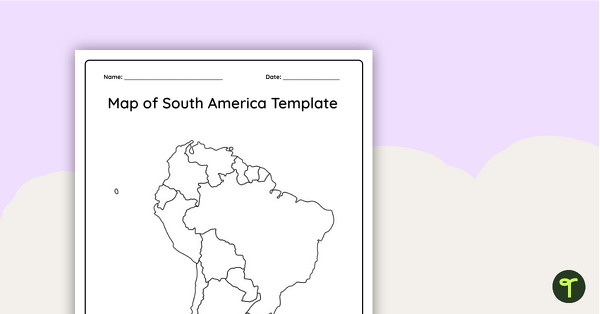
Blank Map of South America - Template
Record and represent data about the location of significant places with this printable blank map of the continent of South America.
- Free Plan
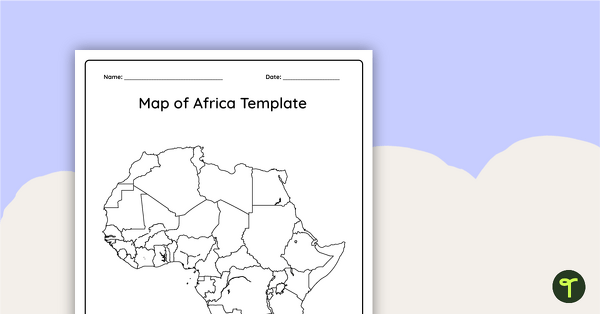
Blank Map of Africa - Template
Record and represent data about the location of significant places with this printable blank map of the continent of Africa.
- Free Plan
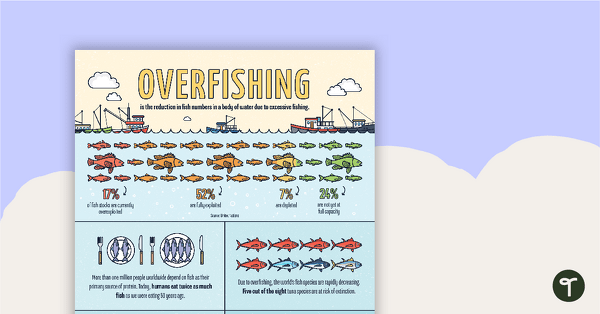
Overfishing – Infographic Poster and Worksheet
Explore overfishing and its effects on marine environments with this eye-opening infographic poster and accompanying comprehension worksheet.
- Plus Plan
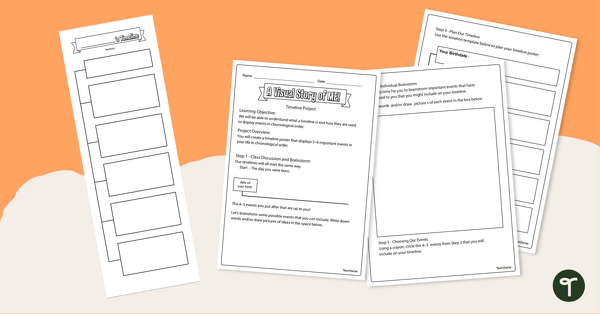
My Personal Timeline - Project Template
Apply knowledge of chronological order while students create a personal timeline highlighting important milestones.
- Plus Plan
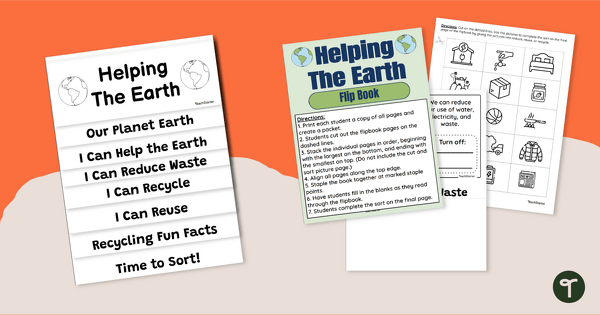
Helping the Earth Flipbook
Use this printable recycling flipbook with your students to teach them about ways to help Earth.
- Plus Plan
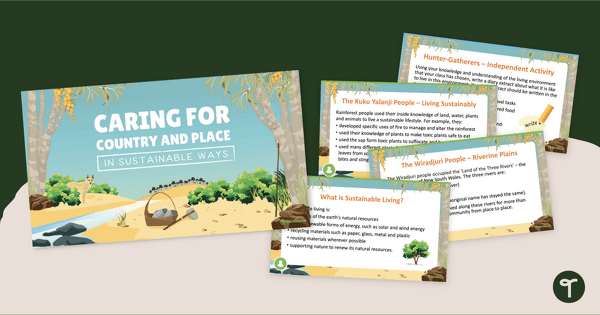
Caring For Country and Place in Sustainable Ways PowerPoint
Explore how Indigenous peoples care for Country and Place in sustainable ways with a teaching presentation.
- Plus Plan
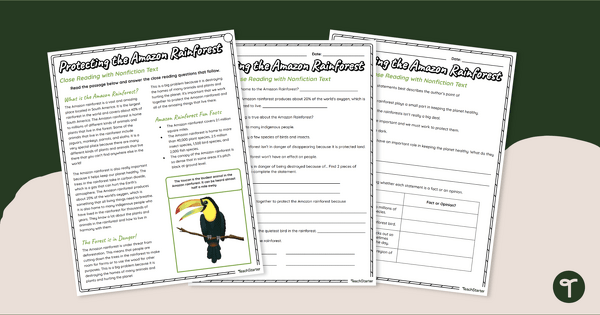
Amazon Rainforest Facts - Reading Passage
Read and learn about conservation with a reading passage and comprehension worksheet on the Amazon Rainforest.
- Plus Plan
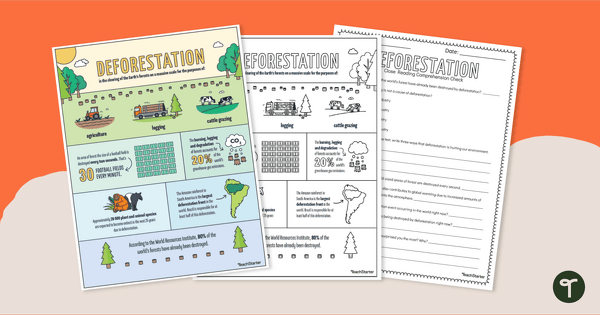
Deforestation – Infographic Poster and Worksheet
Read and learn about deforestation with an engaging infographic and comprehension worksheet.
- Free Plan
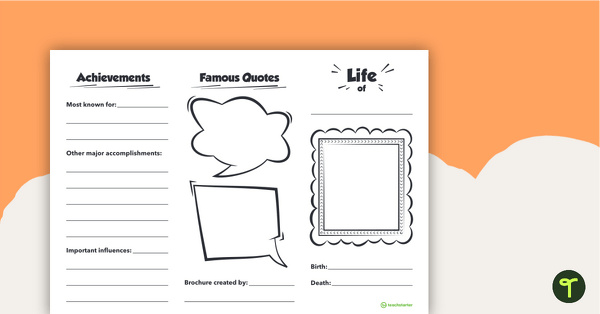
Biography Brochure Template
A brochure template to use when writing biographies.
- Plus Plan
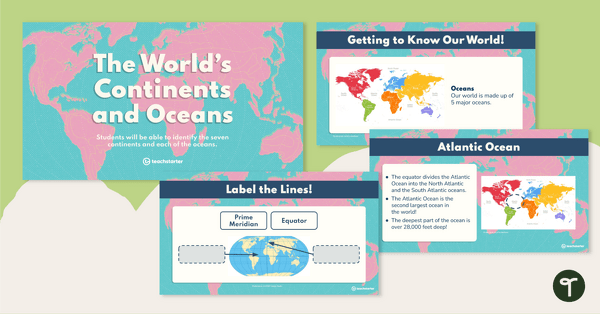
The World's Continents and Oceans – Teaching Presentation
Explore the seven continents and five oceans of the world with this comprehensive teaching presentation.
- Plus Plan
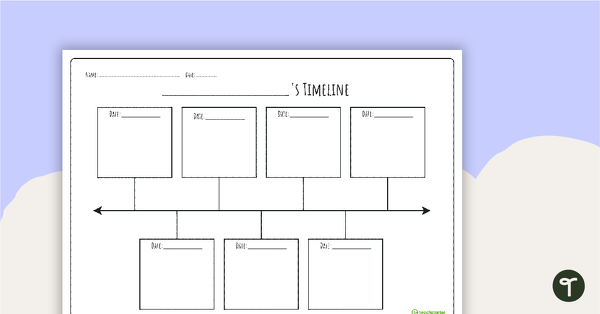
Biography Timeline Template
Use this multipurpose timeline template for a variety of assignments, projects, and more!
- Plus Plan
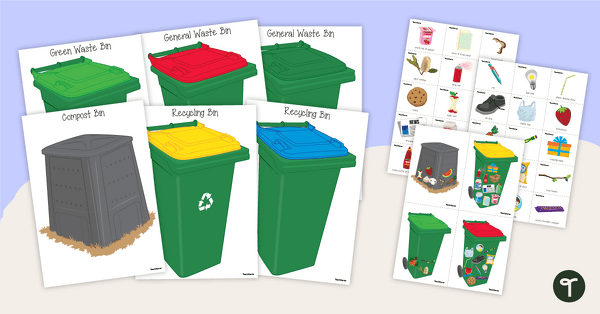
Rubbish Bin Sorting Activity
Learn about recycling, composting, and sustainable practices for waste management with a fun sorting activity.
- Plus Plan
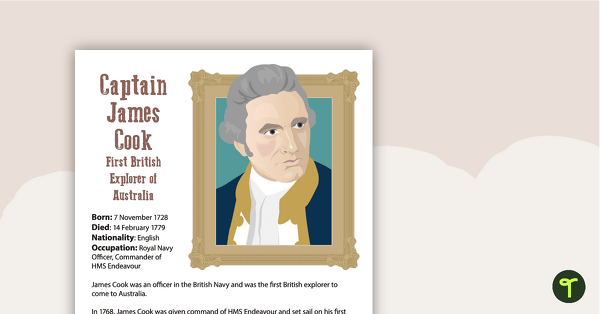
Significant Explorers of Australia - Captain James Cook
A poster to display in the classroom when learning about Captain James Cook.
- Free Plan
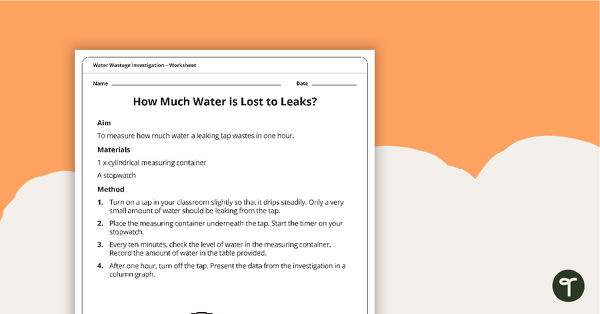
Water Wastage Investigation - How Much Water is Lost to Leaks?
A practical investigation related to sustainable resource use.
- Plus Plan
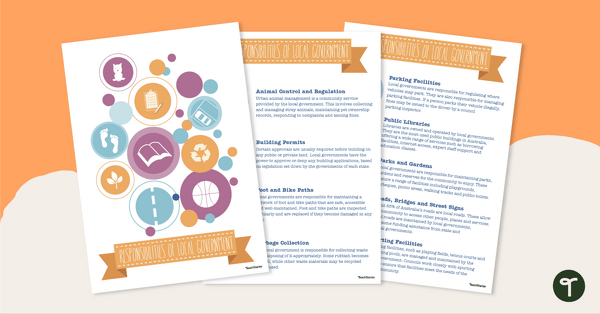
Responsibilities Of Australian Local Governments - Posters
Explore the roles and responsibilities of Australian local governments with this set of classroom posters.
- Plus Plan
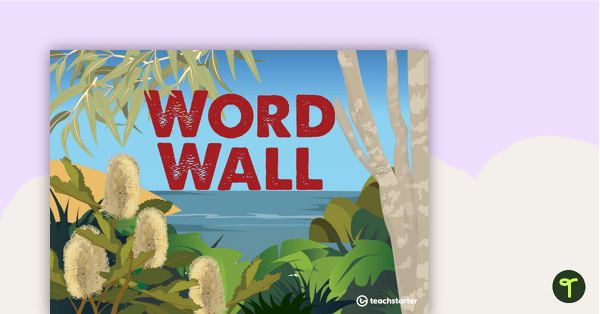
Impacts of Colonisation Word Wall
A Word Wall of the Impacts of Colonisation on Aboriginal and Torres Strait Islander peoples.
- Plus Plan
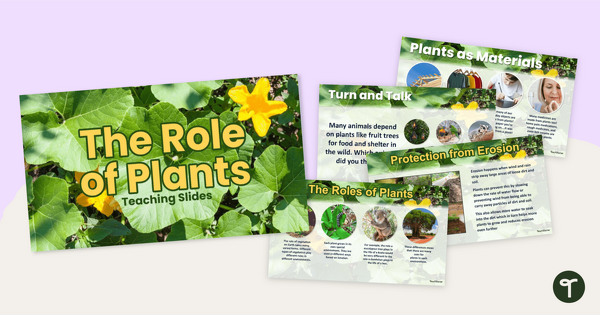
The Role of Plants - Instructional Slide Deck
Explore the different ways that plants can be beneficial with an interactive slide deck.
- Plus Plan
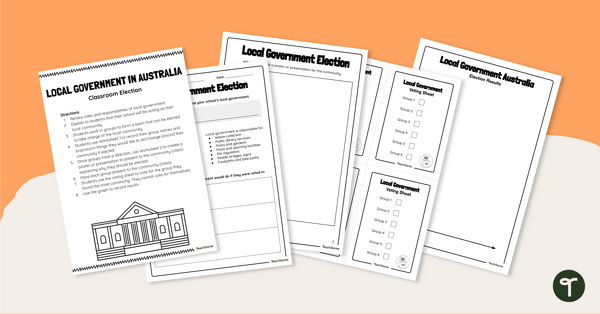
Australian Local Government - Class Election Templates
Explore the roles and responsibilities of local governments in Australia with a mock local council election.
- Plus Plan
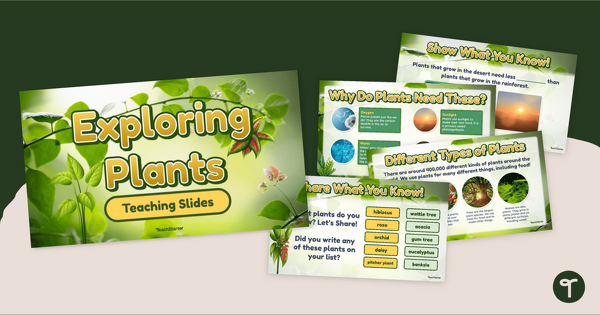
Exploring Plants PowerPoint
Explore the characteristics of plants in our environment with an interactive teaching slide presentation.